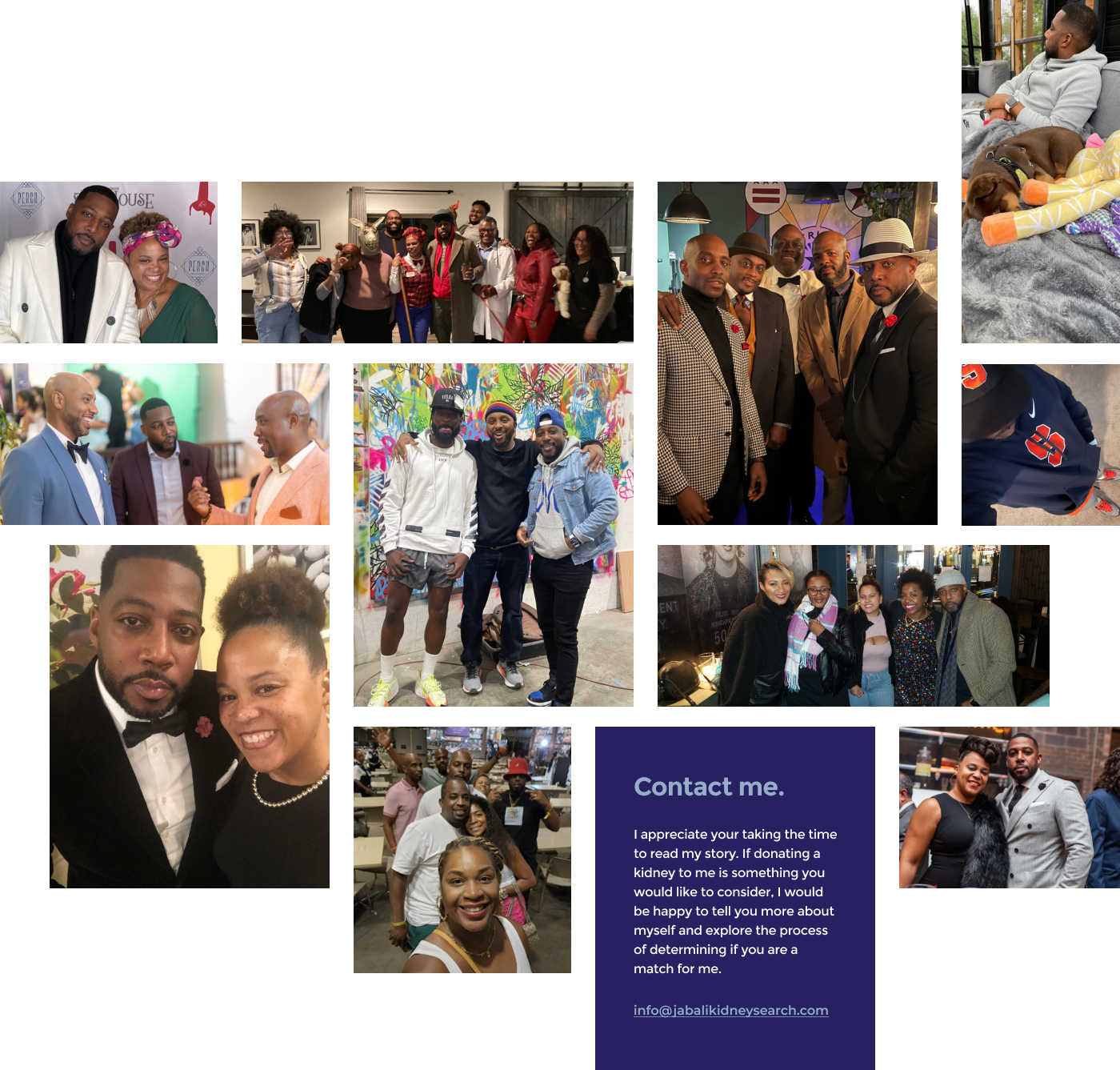Becoming
a Donor.
A guide to kidney donation
There are several ways to give.
Not a match? Not a problem. While it is ideal to find a living donor that is a direct match, you can also donate your kidney as part of a paired exchange program if you are healthy and willing to give, but not a match.
Living Donor Options
Directed Donation
A living person, such as a family member, friend, or even a stranger, volunteers to donate a kidney specifically to the person in need. This is known as a directed or designated donation
Paired Exchange
In cases where a willing living donor is incompatible with the intended recipient due to blood type or other factors, paired exchange programs allow for a swap with another donor-recipient pair facing a similar situation. This helps maximize the number of successful transplants.
See if you’re
qualified to donate.
Potential Donor Steps.
Becoming a kidney donor is a profoundly generous act that can save a life and profoundly impact both the donor and the recipient.
Here’s what you can expect:
1. Express Interest
Let your friend or family member know that you are willing to explore the possibility of kidney donation.
Contact the transplant center where the recipient is being evaluated and express your interest in being a living kidney donor.
2.
Initial Screening
The transplant team will conduct an initial screening to assess your eligibility. This may involve asking about your medical history, lifestyle, and performing basic tests.
3. Medical Evaluation
If you pass the initial screening, you will undergo a comprehensive medical evaluation. This includes blood tests, urine tests, imaging studies, and other assessments to ensure you are in good health and that your kidney is a suitable match for the recipient.
4. Compatibility Testing
The medical team will assess the compatibility between your kidney and the recipient’s immune system. This is crucial for a successful transplant and minimizes the risk of rejection.
5. Psychological Evaluation
You may undergo a psychological evaluation to ensure that you fully understand the implications of kidney donation and that you are emotionally prepared for the process.
6. Education and Counseling
You will receive information and education about the kidney donation process. This includes potential risks, benefits, and the recovery period. Counseling may also be provided to address any concerns or questions you may have.
7. Consent and Legal Process
If you are deemed eligible and decide to proceed, you will provide formal consent for the donation. Legal processes and documentation may be involved to ensure that the donation is voluntary and fully understood by all parties.
8. Surgical Procedure
The actual donation involves a surgical procedure. Depending on the transplant center’s approach, this may be done using minimally invasive laparoscopic surgery or traditional open surgery.
9. Recovery
After the donation, you will go through a recovery period. The medical team will monitor your progress and ensure that you are healing well.
10. Follow-Up Care
Regular follow-up appointments will be scheduled to monitor your health post-donation. It’s important to maintain open communication with the transplant team regarding any concerns or changes in your health.
Overall, while donating a kidney is a significant decision that requires careful consideration, many donors find immense satisfaction in knowing that they’ve made a life-changing difference for someone in need.
Donor Timeline.
Overview
What is involved in Donating a Kidney?
Overall, while donating a kidney is a significant decision that requires careful consideration, many donors find immense satisfaction in knowing that they’ve made a life-changing difference for someone in need.
Screening
& Testing
- Complete a confidential
screening / medical history
[45 min] - Center should contact you
[~3 days] - Complete standard workup
[~3 days] - Get cleared for donation
[1-4 months]
Surgery
& Recovery
- Complete pre-op
[1 day] - Complete surgery
[1-5 hours] - Recover in hospital
[1-4 days] - Refrain from flying
[1 week] - Recover at home*
[1-4 week]

